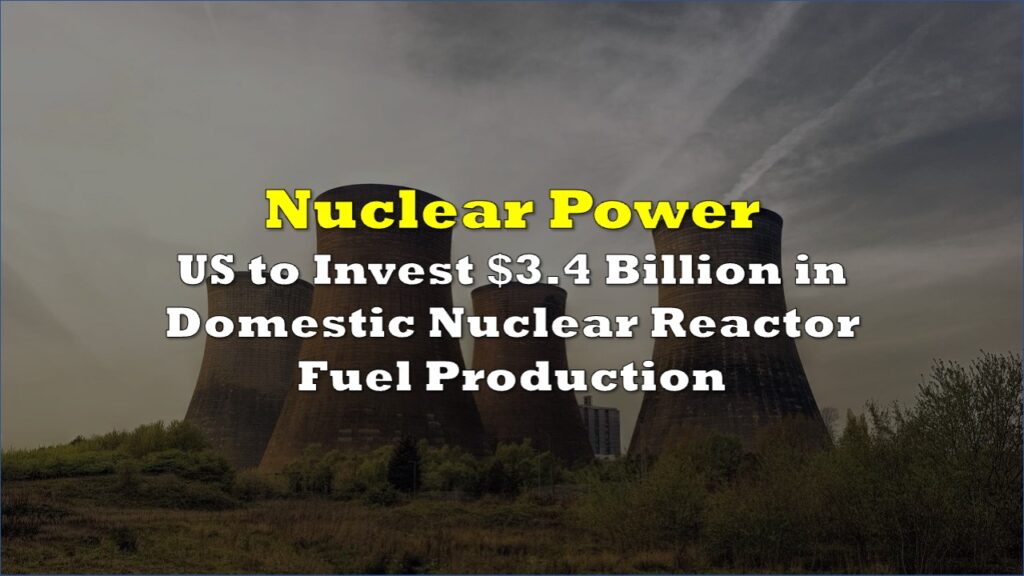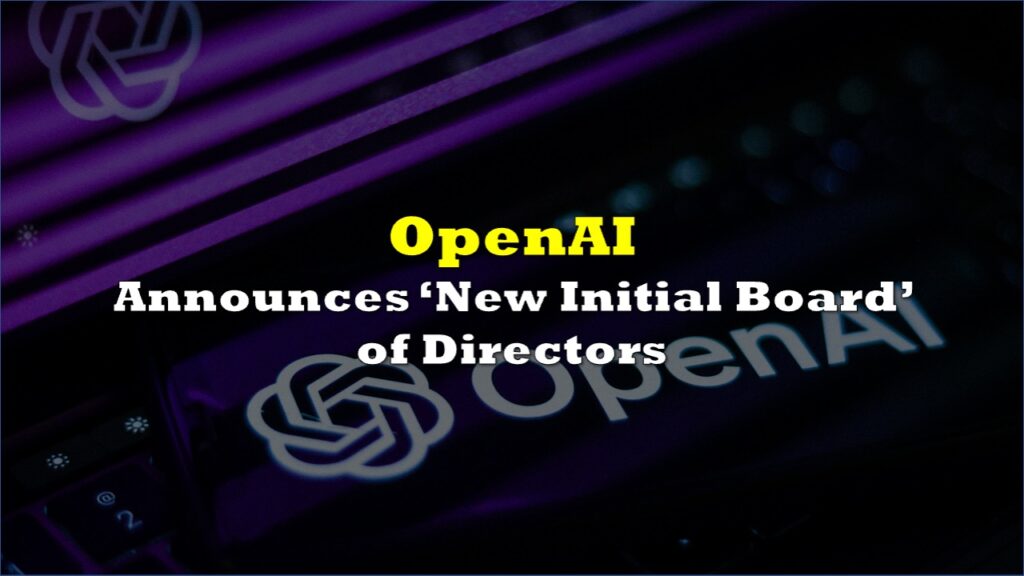Microsoft (NASDAQ: MSFT) is reportedly gearing up to construct a colossal $100 billion data center, aptly named “Stargate.” Analysts speculate that this ambitious endeavor will be powered by multiple nuclear plants, marking a significant shift in the tech industry’s approach to energy sourcing.
Telegraph: Microsoft reportedly planning "Stargate", a $100billion supercomputer to be powered by several nuclear plants
— Mark Nelson (@energybants) May 8, 2024
The era of the great uranium brains approaches. pic.twitter.com/wUBq694OZk
The announcement comes amidst a frenzied race among tech giants to build the infrastructure necessary for advancing artificial intelligence (AI) capabilities. With AI systems demanding vast amounts of computing power, the need for a reliable and abundant energy supply has become paramount.
Mark Zuckerberg, CEO of Meta, has underscored the energy requirements of AI, noting that the utilization of Nvidia’s latest AI chips could necessitate “a gigawatt [data centre which] would be the size of a meaningful nuclear power plant.” This acknowledgment reflects a broader trend within Silicon Valley, where nuclear power is increasingly viewed as a crucial enabler of AI innovation.

Prominent figures in the tech industry, including Marc Andreessen and Elon Musk, have championed nuclear power as a linchpin for sustaining the AI boom. Their support is bolstered by investments in nuclear startups and a philosophical belief in nuclear’s potential to usher in a state of abundance.
For years, OpenAI CEO Sam Altman has been a vocal advocate of nuclear energy. In 2015, Altman made investments in and assumed the role of chairman at Oklo, a company focused on developing advanced microreactors.
Additionally, Altman holds the distinction of being a primary external investor in Helion, a company dedicated to achieving nuclear fusion. Often likened to the process that fuels the sun, nuclear fusion represents the pinnacle of clean energy aspirations. Altman has emphasized the pivotal role of fusion in meeting the energy demands of advanced AI systems, dubbing it essential for the realization of superhuman AI capabilities.
Microsoft’s pursuit of nuclear-powered solutions for its computing needs underscores a broader trend within the tech industry. Last year, the tech giant made headlines by securing the world’s first fusion purchase from Helion, with anticipated supplies set to arrive as soon as 2028.
In a parallel development, Amazon (NASDAQ: AMZN) in March announced its acquisition of a nuclear-powered data center in Pennsylvania. Meanwhile, DeepMind, Google’s AI research lab based in London, is actively engaged in developing technology aimed at enhancing the control of fusion reactions through AI algorithms.
The International Energy Agency forecasts a potential doubling of electricity consumption by data centers and AI systems by 2026, equivalent to the energy consumption of Japan. Ray Rothrock, a prominent Silicon Valley venture capitalist, aptly describes AI as an “energy hog,” highlighting the pressing need for reliable and sustainable energy sources.
While wind and solar energy have received substantial investments from tech companies, their intermittent nature poses challenges for powering data centers that operate round the clock. In contrast, nuclear energy offers a stable and continuous power supply, making it an attractive option for meeting the energy demands of AI-driven technologies.
Beyond California’s borders, the nuclear renaissance is reverberating globally, as evidenced by the surge in demand for reactor fuel reported by Cameco (NYSE: CCJ).
“Gone are the days of rolling out new technology without worrying about future potential runaway environmental impacts… nuclear is the clear winner,” Cameco CEO Timothy Gitzel said.
The astronomical budgets allocated by AI companies, such as OpenAI and its major investor Microsoft, underscore the magnitude of the technological ambitions driving the industry forward. Observers note that this nuclear energy race favors locations that have laid out groundwork for anticipating nuclear power demands, like Chicago in the United States.
One of the only places to do this with a cluster of nuclear plants today is the outskirts of Chicago.
— Mark Nelson (@energybants) May 8, 2024
Thank God the Governor of Illinois, who likes nuclear, personally intervened last year to ban the building of EXACTLY these reactors that are so in demand now for data centers!
Microsoft is planning a $100bn data center that analysts believe will be powered by multiple nuclear plants.
— Michael McLean (@cornoisseur) May 8, 2024
There arent many places in America with multiple plants near each other. https://t.co/UCJn8ad2fz pic.twitter.com/FRaRZj3qhK
Information for this story was found via The Telegraph and the sources mentioned. The author has no securities or affiliations related to the organizations discussed. Not a recommendation to buy or sell. Always do additional research and consult a professional before purchasing a security. The author holds no licenses.










2 Responses
Microsoft has a big job ahead of it and that is to convince power producers in the US, or globally, that it isn’t biting off more than it can chew.
https://www.datacenterdynamics.com/en/opinions/is-microsoft-openais-5gw-stargate-supercomputer-feasible/
Great! They could call it “SkyNet.”